The COVID-19 Outbreak in India Hit Hard in His Hometown. So He Built a Hospital There.
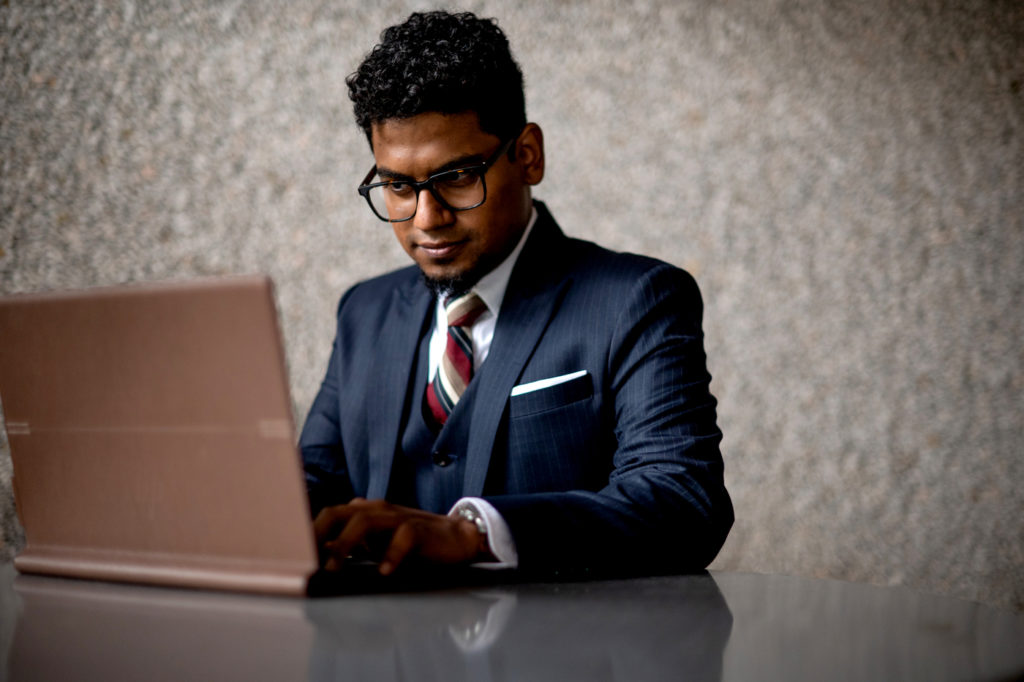
CPS Project Management student Jason Peter worked through the night the past few weeks to develop a COVID-19 hospital in his native Bangalore, India — an inspiration that took form from his capstone project.
The hospital, which will be called the Rapha Care Center, will open on July 1. The five-floor building will provide 130 beds and at least four ventilators. Peter’s team hopes to treat 400 patients per month.
Huntington 100 Winners Reflect on Their Achievement
Four CPS students were honored this year as members of the Huntington 100, a group of Northeastern students recognized for their contributions to research, global engagement, athletics, entrepreneurship, community service, leadership and other areas that impact the campus or other communities and demonstrate a commitment to the values of Northeastern University.
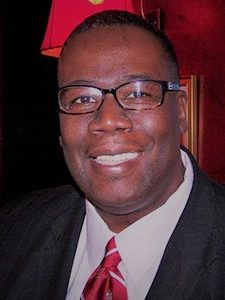
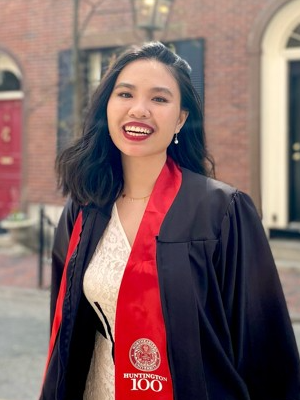
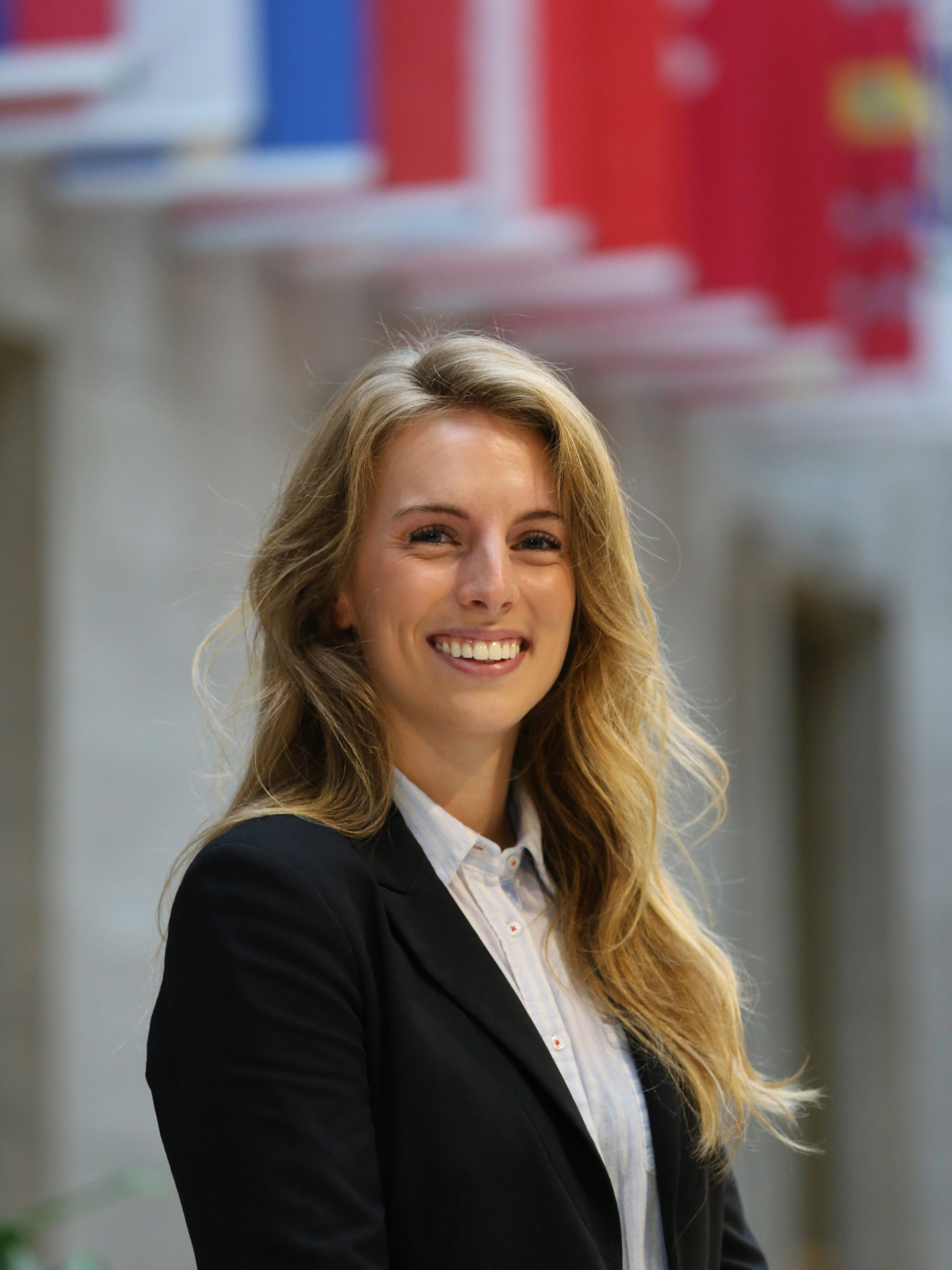
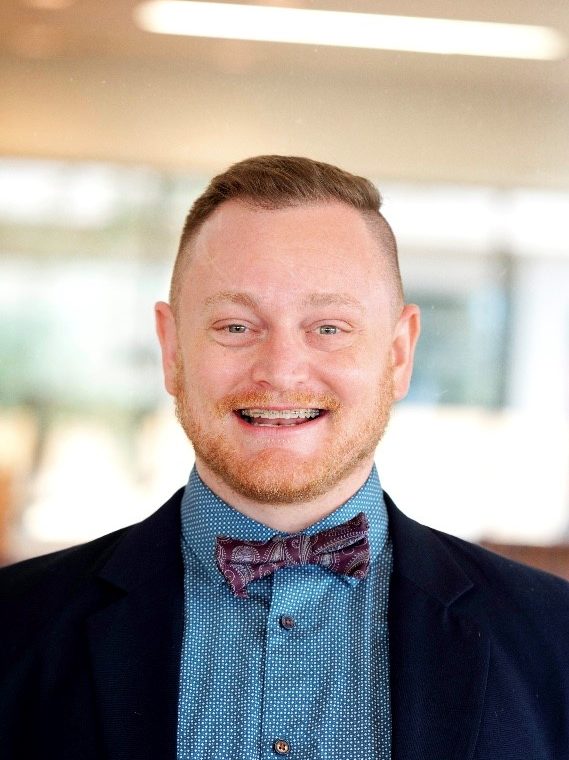
Honorees Antonio Boyd (EdD ’21), Hien Linh Dang (BS ’21, Finance and Accounting Management), Sandrine Mallet (MS ’22, Commerce and Economic Development), and Kevin Stensberg (EdD ’21) were among a record 16 CPS students put forward for the award this year. Across the university, there were 819 nominations—the highest number in the 15-year history of the Huntington 100.
Boyd, whose work and research focus on experiential learning, afterschool programming, equity and access, diversity and inclusion, social justice education, and college and career pathways, serves as executive vice president at Future of School, a leading non-partisan education intermediary focused on access to quality education.
“I am most passionate about experiential learning,” he said. “Not only is Northeastern a leader in experiential learning, but our program is so focused on experiential learning that I have been able to work with several professors in the field, which has been an excellent experience. I am also passionate about equity and access and diversity, and inclusion. My research and work have fueled my passion for creating college and career pathways for students of color. I believe this is the civil rights issue of this generation.”
Mallet, a research assistant at Northeastern’s Center for Emerging Markets, investigates questions of equity through the lens of economics.
“I’ve always been fascinated by the question of why some nations are poor and others rich,” she said. “My studies in economic development at CPS has given me the opportunity to learn how to combine theoretical modeling and empirical studies to better understand such questions, allowing me to think critically about solutions to the challenges that face global economic and human development.”
Of her inclusion in the Huntington 100, Mallet said, “Receiving this honor means so much to me. My goal is to always be a positive impact on my surroundings and this recognition makes me feel that in some small way, I am succeeding in that goal—and this brings me a lot of joy.”
For Stensberg, who earned his doctorate in organizational leadership studies and has served as a site director for Northeastern in London and Thessaloniki, Greece, membership in the prestigious group represents a kind of personal and professional culmination.
“I’ve worked in student affairs and international education over the last 20 years in North America, Asia, Europe, and the Middle East,” he said. “So to have a highly ranked university’s student affairs division where I obtain my terminal degree recognize my contributions and value alignment as being exceptional—well, that is to me a great point of professional and academic pride. I think moving forward I also have great hope about what being a Huntington 100 alum may mean. As you might guess based on my profession, community and belonging are important values for me, and as I did my Northeastern degree from eight time zones ahead of Boston, this award affords me a new group of peers to call my second Northeastern cohort. I’ve already connected with everyone on LinkedIn and have joined the social media groups, and I do look forward to the ways in which we might support each other in the future.”
As an international student, Linh Dang says, she feels “blessed to always feel welcomed and supported by the faculty, mentors, and friends at Northeastern.” She has also treasured the range of opportunities available, noting that “Northeastern allows me to explore my diverse set of interests from impact investing, healthcare, consulting, entrepreneurship, and anything in between through our renowned co-op programs and student organization participation.” Being honored as a member of the Huntington 100, she says, has been a humbling experience. The only Vietnamese and undergraduate honoree, she said she hopes to preserve and instill a mentality of excellence in herself and those around her.
“Northeastern’s commitment to interdisciplinary learning, particularly at the intersection of strategy, healthcare, and entrepreneurship is what allows me to reach my full potential,” she said. “The College of Professional Studies is always known for its diversity and globality, which fosters an open and growth mindset for me and other international students to thrive in an increasingly global environment.”
Karl Reid to join Northeastern as first Chief Inclusion Officer
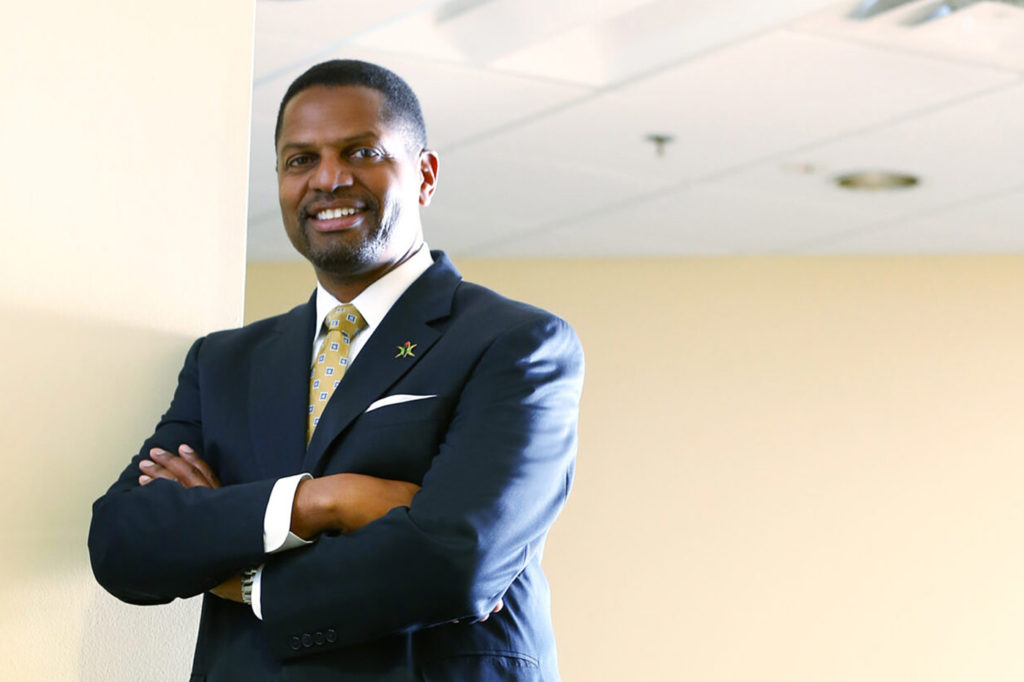
Northeastern University President Joseph E. Aoun and Provost David Madigan have appointed Karl Reid as the university’s first chief inclusion officer, a key role that is part of an institution-wide effort to promote diversity, equity, and inclusion and ensure that every member of the university community is supported on the path to success.
In addition to his cabinet-level appointment, Karl will also hold the title of Professor of the Practice in the Graduate School of Education in the College of Professional Studies.
Celebrating our Newest Graduates– Virtually
The college celebrated the achievements of undergraduate and master’s graduates in a virtual recognition ceremony on May 15. Watch highlights from the ceremony below, and click here to watch the full ceremony, which includes candidates’ personalized messages and photos as well as messages from faculty members. Congratulations to our newest graduates!
Mary Loeffelholz, Dean of the College of Professional Studies, welcomes students, families and friends to the virtual recognition ceremony.
David Fields, Senior Associate Dean, Academic and Faculty Affairs and Professional Programs, introduces this year’s student speakers.
Anh (Ann) Doan and Tien (Tiffany) Nguyen, this year’s student speakers, discuss their career goals and how the college has helped them on their journey to create a start-up that supports women’s development.
Dave Hagen, Associate Teaching Professor, announces this year’s Excellence in Teaching award winners: Dr. Margaret Gorman and Dr. Wendy Crocker.
Dean Loeffelholz introduces the recognition ceremony speaker. Speaker of the Massachusetts House of Representatives, Robert DeLeo, AS’72, gives his address to graduates.
Dean Loeffelholz introduces the ceremony’s alumni speaker. Clifford Harrison, CPS’15, addresses graduates as this year’s alumni speaker.
Congratulations to all of our newest graduates! Click here to watch the full ceremony, which includes graduates’ personalized messages and photos as well as individual messages from faculty members.
Unemployed in the Pandemic? Here’s How to Start Your Own Business
A new online course is now available to teach people who have lost their jobs amid the COVID-19 pandemic how to turn an idea for a business—or a passion or hobby—into a profitable startup.
Elizabeth Zulick in New Role to Accelerate Research, Innovation, Discovery and Entrepreneurship
In recent years, the College of Professional Studies has successfully pursued and won major funding to support practice-focused educational research, discovery and innovation. And, the College’s faculty, staff and students are increasingly engaged in its entrepreneurship programs.
To further develop and promote the College’s efforts in these areas, Dr. Elizabeth Zulick, Assistant Teaching Professor and Faculty Director for the Healthcare and Biotechnology domain, has been named to a new role as Special Assistant to the Dean for Research, Innovation, Discovery and Entrepreneurship.
In her new position, Dr. Zulick will develop a college-wide advisory committee to gather and communicate information about relevant funding opportunities, coordinate approaches to major funders and connect faculty and students with entrepreneurial programs at Northeastern. Dr. Zulick will also make recommendations to the dean and the College of Professional Studies leadership team about funding priorities, and provide mentorship to faculty members.
Dr. Zulick brings an outstanding record of leadership and collaborative accomplishment to this role. Beyond her own continuing scientific research program, she is the principal investigator on a $4.4 million National Science Foundation (NSF) grant to provide continuous support for students moving from Middlesex Community College in Lowell, MA into the College of Professional Studies bachelor’s in Biotechnology and the College of Science master’s degree in Biotechnology – essentially from associate’s to master’s. The research component of the grant will explore the efficacy of the support systems piloted in the program in increasing the success of high-achieving, low-income students in this high-demand field.
Dr. Zulick has also collaborated with Graduate School of Education colleagues Dr. Corliss Thompson and Dr. Kelly Conn on another NSF grant of $400,000. This grant will explore the success of an innovative high school program offered by the Center for Advanced Professional Studies, the network partner of the Northeastern Network for Experiential Teaching and Learning (NExT). The goal of the program is to boost the motivation and persistence of young women and underrepresented minorities in science, technology, engineering and math (STEM) careers.
Inspired and Inspiring
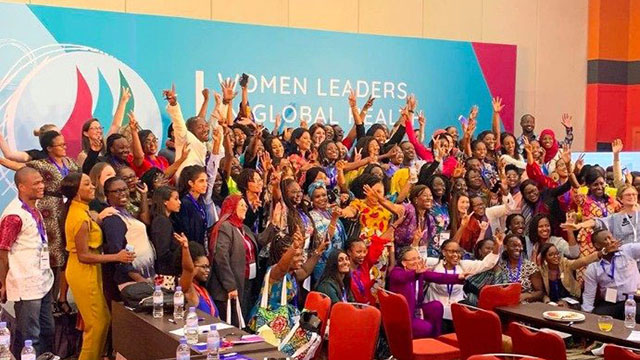
Pictured above: The Women Leaders in Global Health conference in Rwanda.
Earlene Avalon was thrilled. In her first trip to Africa for the third annual Women Leaders in Global Health conference, not only did she meet Zoleka Mandela, Nelson Mandela’s granddaughter, but also leading international health equity hero and Partners In Health co-founder Paul Farmer. The First Lady of Rwanda and Her Royal Highness of Jordan were also guest speakers.
The conference, held from November 9–10, 2019 in Rwanda, celebrated women in leadership roles and connected leaders from around the world to work toward gender equity in the field of global health.
Avalon, Assistant Professor and Lead Faculty of the Health Management and Health Science programs, first got involved with the conference when, as a volunteer at Brookline High School, she brought a group of students from the school’s African American and Latino Scholars program to the Global Health Film Festival in London in 2017. There she met Dr. Agnes Binagwaho, the former Minister of Health for Rwanda, and they kept in touch. Binagwaho invited Earlene to lead a mentoring session at the conference, held at the University of Global Health Equity where Binagwaho was Vice Chancellor and Chief Executive.
Avalon was particularly moved by Zoleka Mandela’s personal story about surviving breast cancer, and its implications regarding healthcare inequity. “Her discussion was really on access,” she says. “Mrs. Mandela shared that because of her privilege she had access to various lifesaving healthcare services. She challenged that audience to think about what that means for women and their families who do not have the same resources she does in terms of access to cancer treatment. That was really powerful to me,” Avalon says, “because a lot of those same issues are currently being played out here in the United States in terms of who has access to what treatment. It can be financial, it can be race, it can be gender, it can be geographical diversity – so there were definitely a lot of similarities there.”
Avalon’s mentoring group included recent medical school graduates, seasoned physicians and members of graduate programs in other clinical disciplines, all of whom were particularly interested in global health and leadership. “Many of the women are already practicing clinicians across the globe, but they wanted to get into healthcare leadership and policymaking. They want to be part of the decision-making process,” Avalon says. “And so I provided insight in terms of how I was able to move up through the ranks in healthcare, and suggestions they might want to consider as they continue to advance and develop their careers.”
Since the group included women from all over the world, “it was fascinating just to hear about some of the cultural differences of women practitioners and healthcare leaders, and some of the challenges they face in their respective countries in terms of either their gender, their ethnicity or even class,” Avalon says. “We took time to get to know each other, to understand some of those unique differences.”
Avalon created an online community for the group to continue to connect after the conference was over. She likes to use the term “mentoring circle.” “We created our own ‘support village’ for each other, because often [these women] felt really alone or isolated. The further they advanced, the more isolated and alone they became,” she says. “Knowing they have this supportive group of women throughout the world who are caring for them – who are cheering them on – who are rooting for their success – has just been tremendous.”
After returning home, Avalon thought about ways to bring her conference experience into the classroom. She believes it’s important for students to be aware of the work their professors are doing outside the university walls. “Often students see us as educators, but not necessarily see us in practice. So I’m always trying to bring in those real-life experiences,” she says.
Sharing these experiences with her Northeastern undergraduate students, Avalon believes, will encourage them to broaden their view of public health to a global perspective. “Expanding our understanding of some of the health implications on an international level can really help us look at what we can do to improve our communities,” she says. Reflecting on how Partners In Health was created, she adds, “People from all different disciplines have to work together to improve our world and make it a better place for future generations. That’s one of the things I’m hoping to teach my students.”
She also helps her students look ahead to their own futures. “Oftentimes, you’re in the midst of going to school, or working or raising a family, and it’s hard to imagine the possibilities out there,” Avalon says. “As an educator, I’m always trying to help students imagine where they could be in five years, 10 years, 15 years as a result of using networks and connections – and more importantly, stepping outside their comfort zone to learn new things and explore new opportunities.”
Avalon’s students are grateful for her encouragement. As Health Management student Leala Tanous enthused upon learning about Avalon’s involvement in the conference, “This is so inspiring! It feels good to know someone who makes such a difference in our world!”
The Empathy Lens
Through trainings that welcome difficult conversations, the Center for the Study of Sport in Society fosters social change.
The Center for the Study of Sport in Society provides training to youth programs and other partners to help them give young people opportunities to explore their potential and develop the skills to be successful.
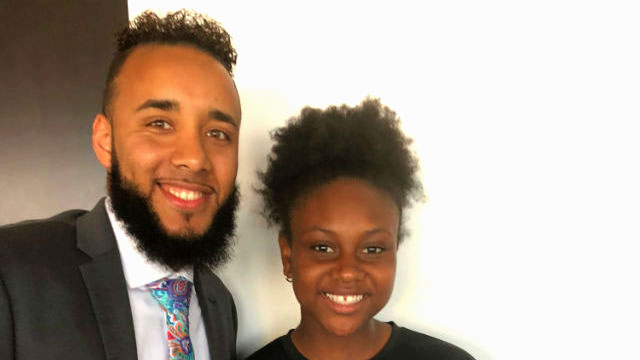
Growing up in a rough section of Boston’s Dorchester neighborhood, law enforcement officer Jeffrey Lopes (pictured above) says, “I saw a lot.”
His experience included losing friends to guns and gangs, and it forged a perspective that he points out can’t be learned from books.
“I bring the perspective of empathy and understanding what people have been through and taking away some of the labels and stigmas that have been attached to certain people by other people,” Lopes says. “Growing up in an urban setting, going to an urban school district, I’ve seen some of these challenges first-hand. And that’s where I see a lot of challenges in policy: a lot of people who do this work have never experienced it. They’re scholars, but they’re not practitioners of the system.”
Lopes, who is the founder of the We Belong: Empowering Youth Through Leadership program and is pursuing a doctorate of law and policy at Northeastern University College of Professional Studies, likes the idea of combining theoretical and experiential learning. It’s one reason he believes the university’s Center for the Study of Sport in Society is an essential institution. And for Lopes’ We Belong program — which creates opportunities for young people to engage in their communities, to connect with police officers in a friendly context, and to explore who they are and who they want to be — the Center has been a key partner.
“The Center has played a vital role in the leadership programs that I run,” Lopes says. “By talking to young people about some of the stereotypes and stigmas that they have, and helping them break that down, it changes people’s mindsets. The Center’s trainers have helped us connect with young people, because they’re coming from a whole different perspective as to who are we, how should we act, how do we give out unconscious bias, and how do we look at things through an empathy lens, versus just looking at what’s on the surface.”
The Center seeks to harness the power and appeal of sport as a catalyst for social justice. According to Executive Director Dan Lebowitz, “We are a solution-based organization focused on how education moves people to a new level of cognizance, a new level of consciousness, and a new level of empowerment that will create change. In a world too readily defined by divisiveness, inequality and disenfranchisement, the Center finds its charge in the positivity of Dean Mary Loeffelholz’s embrace of ‘inclusive prosperity’ and in creating large and ever-increasing portals of equity amidst the norm of inequality. This is our mission, our passion and our sustainable outcome.”
Founded in 1984, the Center’s goals include fostering diversity, creating gender equity, preventing interpersonal violence, challenging racism, sexism and heterosexism, and empowering sport-based youth development networks. It pursues these aims through research, education and advocacy, and its success is reflected in the range of its clientele; the Center has delivered customized trainings to every major college conference, to preparatory schools, to all branches of the U.S. military, to Major League Baseball, to the National Football League, at the South African World Cup, to recidivism prevention programs, to community groups, to police departments, to youth offender programs and, in partnership with the Attorney General and the New England Patriots’ Charitable Foundation, to over 100 high schools in Massachusetts.
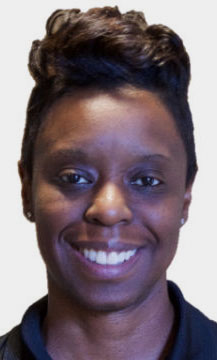
Fundamental to its success has been the expertise and influence of the Center’s staff, all of whom are trained in its unique approach, and all of whom are athletes. Assistant Director of Training, Lisa Markland ’97 (pictured at left), was originally recruited at Northeastern for her skill in the high jump. A former New England champion and two-time America East champion, Markland still holds the high-jump record at Northeastern. She is also someone for whom the drive to help others kicked in at an early age.
“From when I was very young,” Markland says, “if I saw somebody who was being bullied, or who didn’t have what they probably should have — whether they looked disheveled, or they were my friend who was sad because they were hungry — I didn’t really like that. I was always sticking up for someone who was being bullied or who wasn’t included in a game. And then it just kind of carried on through college. If someone was in need, they could sleep on my couch, or we could cook some food. [At first], I thought I was going to be a cop, and that’s how I was going to help. But then the human services thing came in.”
After graduation, Markland worked for several years at the Massachusetts Department of Social Services as a social worker. She then served as program coordinator for Boston’s Roca’s Youth Star program, helping disenfranchised young adults gain life skills and critical credentials such as their GEDs. For the past 15 years, she has worked as a facilitator for the Center for the Study of Sport in Society’s nationally accredited Mentors in Violence Prevention (MVP) program.
According to Lebowitz, Markland’s talent for teaching, and for connecting with people on a personal level, has made her an invaluable member of the Center’s team.
“Lisa has an amazing ability to adapt the curriculum,” Lebowitz says. “She can go into any room and succeed. There is something about her ability to engage people at their basic human level that I’ve never seen.”
Recently, Markland had the opportunity to test her skills in another context, when she and colleague Sam Straus (now a lecturer at Harvard’s Graduate School of Education) traveled to Australia’s island state of Tasmania to facilitate a training at a women’s shelter there. Despite some culture shock, Markland says, what was most eye-opening were the similarities.
“They do some things differently,” she says. “Some of the language is a little bit different. But it was also not different. Sam and I were struck that we were across the world and they were having the same issues that we have here. You think it’s going to be different. But abuse is abuse. The stages of abuse are the same no matter where you go.”
According to Markland, finding such common ground is one key to the workshops she leads. Another is helping participants find their own voices and styles.
“The difference with our trainings,” she says, “is that we’re really facilitating a conversation. We know our curriculum and we do have a flow in our curriculum, but we facilitate it in a way that people are actually running the training. We may narrate a little bit, facilitate a little bit, throw some thoughts out there, but then we allow the group to have the dialogue, and that actually forms the experience of the training.”
In thought exercises and discussions, participants explore what leadership and other concepts mean to them individually, and the various ways that bystanders can respond when they see problems in the real world. Markland notes that effective action can take many forms.
“How you’re going to show up when you see something that is problematic depends upon who you are,” she says. “Your form of leadership might be, ‘I’m not going to put myself in a dangerous situation because I have family who are depending on me to get back home.’ Or it might mean that there needs to be some engagement. It might mean that you take some information, so that when the police come you’re able to give them information. It might mean you call the police. It might mean you take a picture. We talk about the gamut of options that people have.”
While the Center doesn’t teach athletics, they are at the heart of what it does, both in the way that it leverages the influence athletes have and because Center staffers often train the leaders of organizations that do focus on athletics. In the process, it helps them grapple with some tough questions.
“Are kids of different economic and different racial backgrounds getting the same access to fields?” Lebowitz asks. “Are they getting the same access to equipment? We’re still involved in all of those things, but we no longer roll out a ball. We roll out curriculum that changes the way that the organizations that do roll out a ball think about what impact means on a sustainable level for their kids. And I think athletes have a unique voice that kids often understand and like to listen to.”
For Officer Lopes and We Belong, where programming often involves basketball, dodgeball and other games, the Center’s essential contribution is in the dialogue it helps to create and the growth such dialogue can spark. As he works to finish his doctorate and considers the next chapter, Lopes says that his own experience at the Center has had a profound effect on him — one he hopes to carry forward.
“Being in that training and having them break down all the different levels of social justice: how you view people, how you should view people, and how you should connect with people versus the way you do it — it was very, very impactful,” Lopes says.
“It’s important,” he adds. “It’s about continuing that conversation, so that everyone has a seat at the table.”
First-Generation College Students Push Toward Their Goals
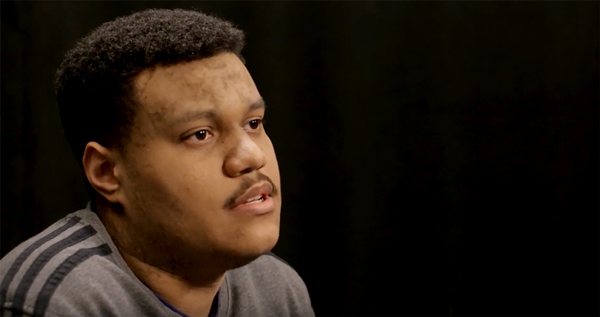
Pictured above: Northeastern first-generation college student Cristian
Being first in the family to attend college isn’t always easy. In the video “Staying on Course: Strategies for First-Generation College Students to Succeed,” students talk about juggling home responsibilities with coursework and struggling to feel they belong – and what helps them succeed.
The video was produced by three faculty members who were themselves first-generation students: Dr. Earlene Avalon, Assistant Teaching Professor of Health Management and Health Sciences, Dr. Christina Lee, Associate Professor in the Department of Applied Psychology at Bouvé College of Health Sciences, and Dr. Kristen Lee, Associate Teaching Professor in Behavioral Sciences. The project was funded by a grant awarded by the Office of Institutional Diversity and Inclusion. The video includes a list of student organizations that give first-generation students support and a sense of community.
Life in the Hyphen

Maria Servellón describes it as “living in the hyphen”: Having multiple identities, whether it’s race, gender, religion, culture, or sexual orientation.
Servellón, who teaches digital media at Northeastern, is a first-generation, Salvadoran-American from Boston. She says hyphens are something she has become accustomed to; she moves through the world as both a Latina woman and a first-generation every day. Over time, it became the center of her fascination.